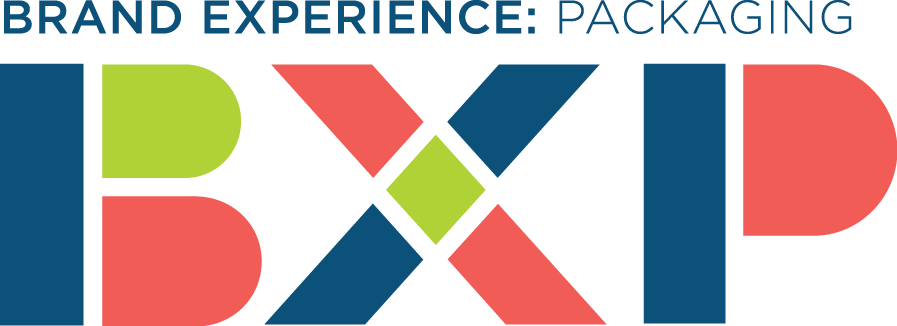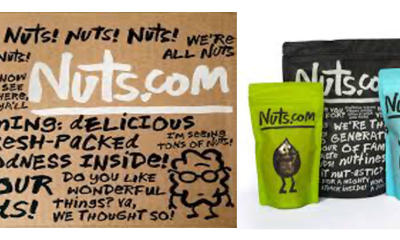Press Releases
Leading Brands, Retailers Make Packaging Commitments to Curb Plastic Pollution
Thirty-six members of the consumer goods forum commit to curb plastic pollution problem in new CEO-led plastic waste coalition of action.
Published
3 years agoon
By
BXP Staff(PRESS RELEASE) Demonstrating global leadership in the consumer goods industry’s effort to tackle the plastic pollution challenge and help advance a world where no plastic waste ends up in nature, the Plastic Waste Coalition of Action from The Consumer Goods Forum (CGF) announces the first critical advances made by Coalition members to transform the industry’s relationship with plastic packaging.
Focused on key packaging design changes and the development of a framework for optimal Extended Producer Responsibility (EPR) programs, these actions illustrate the coalition’s leading role in the industry to reduce plastic waste by driving tangible, scalable actions that will impact the quality and recyclability of plastic packaging, and support waste management schemes around the world.
The development of the new coalition earlier this year builds on the CGF’s 2018 endorsement of the Ellen MacArthur Foundation’s New Plastics Economy Global Commitment. The Coalition’s vision of driving progress towards the New Plastics Economy is embodied in its four main priorities:
- Adopting plastic packaging design guidelines to reduce the amount of plastic used in packaging, and increase its value, quality and recyclability;
- Aligning on a framework for EPR programs to support the improvement and development of waste management systems worldwide;
- Supporting recycling innovations; and
- Piloting new programs in advanced and transitional markets to increase recycling rates.
Advancing on their first priority, Coalition members have finalized the first two of a series of “Golden Design Rules” for the design of plastic packaging, which are designed to accelerate progress towards their aim of using less and better plastic. These rules aim to help reduce the complexity of the recycling process for different types of materials, thereby increasing recycling rates. These first two focus on increasing the value of PET bottle recycling and removing problematic elements from packaging, such as carbon black, PVC (polyvinyl chloride) and EPS (expanded polystyrene), which complicate the recycling process. Consumers will be able to see the impact of these changes as everyday products such as single-use bottles, toiletries, household cleaning supplies, food wrappers and take-away containers will be packaged in materials that can be recycled more easily.
Coalition members from around the world, with a shared revenue of more than 1 trillion euros and representing more than 10% of the global plastic packaging market, have committed to adopting these rules wherever possible by 2025. These commitments come after identifying and prioritizing opportunities in their packaging portfolios where they can make targeted and valuable impact. They also commit to reporting on their implementation of the rules through a simple process aligned with Ellen MacArthur Foundation’s New Plastics Economy Global Commitment reporting. Details of what these first two rules entail and which members have adopted them are available on the coalition’s website.
Additionally, Coalition members have released a new position paper, “Building a Circular Economy for Packaging: A View from the Consumer Goods Industry on Optimal Extended Producer Responsibility,” which provides a framework for the development and implementation of EPR programs around the world. Recognizing that the industry can’t achieve a circular economy working on its own, the Coalition supports the development of EPR programs as a way to help facilitate industry and government collaboration on improved waste management. Coalition members will be able to use this framework to guide their engagement with markets around the world and help provide effective support for local recycling schemes. The paper is available for download on the Coalition’s website.
AdvertisementThese actions on both design and EPR are overseen by the coalition’s leadership. The coalition is sponsored at the CGF Board level by Alan Jope, CEO, Unilever, and Galen Weston, Executive Chairman, Loblaw Companies Limited. Its Steering Committee is co-chaired by Barry Parkin, chief procurement and sustainability officer, Mars, Incorporated, and Robert Nicol, vice president of corporate affairs, Walmart Canada.
Alan Jope, CEO, Unilever, said, “We must urgently take action to stop plastic waste and move to a circular model. This is the number one priority for us as a Coalition. No one business can achieve this on its own, which is why we’ve joined forces to drive change across our own industry and to hopefully set an example for other sectors.”
Galen Weston, executive chairman, Loblaw Companies Limited, said, “Our industry generates a substantial share of the world’s plastic waste. As the companies that design, package and sell the products, we must be a substantial part of the solution. As a Coalition, we actively support impactful decisions, and thoughtful policies that reduce plastic waste.”
Ramon Laguarta, CEO, PepsiCo, said, “Our industry is taking vital steps to address packaging waste and plastic pollution, including material and design innovation, new packaging formats and systems, and building better recycling programs. We know the public sector has an important role to play. A spirit of public-private partnership lies at the heart of our new guidance around optimizing extended producer responsibility systems.”
Doug McMillon, CEO, Walmart, said, “The continued and widespread use of plastic in our industry has brought into focus the need for swift action to reverse its negative effects on our planet and people – industry has taken steps, but, so far, our work has not been enough. The CGF Plastic Waste Coalition is taking a bold step in the right direction, creating much-needed packaging design rules to encourage collective action. This work is critical to our own goal of becoming a regenerative company–one that restores, renews, and replenishesß∑–and we’re eager to make progress together.”
The 36 member companies of the Plastic Waste Coalition are: Amcor, Barilla, Bel Group, Beijing Hualian Group, Carrefour, The Coca-Cola Company, Colgate-Palmolive, Danone, Dairy Farm, Essity, Grupo Bimbo, GSK, Henkel, ICA, Jerónimo Martins, Johnson & Johnson Consumer Health, Kao Corporation, Land O’Lakes, L’Oréal, Loblaw Companies Limited, Mars, Incorporated, Merck Animal Health, Mondelēz International, Nestlé, NTUC Fairprice, PepsiCo, Procter & Gamble, Reckitt Benckiser, Rewe Group, Sainsbury’s, SC Johnson, SIG Combibloc Group, Tetra Pak, Unilever PLC, Walgreens Boots Alliance, and Walmart.
AdvertisementSend your press releases to BXP at press@bxpmagazine.com. Learn about our submission guidelines.
SPONSORED VIDEO
Branding with Ferocity – Thinking Like an Indie Brand
Get a better understanding on how to leverage new technologies to engage and delight shoppers, sustainability’s role in product and package design – being sustainable and premium are not mutually exclusive, plus best practices and tips for collaboration and how to launch new products and refresh existing product line-ups and brands.
You may like
Advertisement

GO MINIMALISM . . . HOLD ON A MINUTE!
Sustainable, 100% Recycled Transparent Sheeting is Now a Reality!

Kroger, Walgreens to Dedicate Section of Their Stores to Reusable Packaging

6 Marketing Tips for Ecommerce Brands to Win the Holiday Shopping Season

New Wunderoots Branding Celebrates the Carrot

Fact or Fiction? The Truth about Eco-Friendly Packaging

BXP May 2021 Think & Clink

Unilever Raises Bar for Accessibility with Degree Inclusive

Crown Royal’s Limited-Edition Pack Designed by Oscar-Winner

Coca-Cola Explores World of Paper Bottles
Subscribe

BULLETINS
Get the most important news and business
ideas from BXP Magazine's news bulletin.
Latest Tweets
Advertisement


